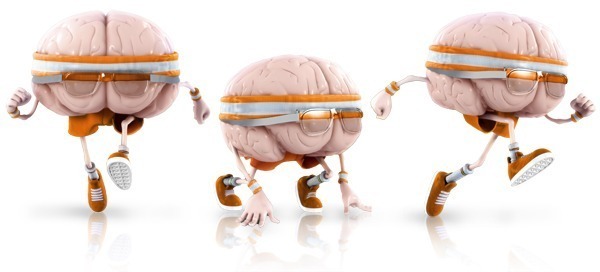Source: https://www.niddk.nih.gov/health-information/healthy-moments/Pages/archive.aspx#hm455
Bariatric surgery can help people with severe obesity, and Dr. Rodgers explains the benefits and considerations….
It is never too late to start
Source: https://www.niddk.nih.gov/health-information/healthy-moments/Pages/archive.aspx#hm455
Bariatric surgery can help people with severe obesity, and Dr. Rodgers explains the benefits and considerations….
Source: https://www.niddk.nih.gov/health-information/healthy-moments/Pages/archive.aspx#hm455
Bariatric surgery can help people with severe obesity, and Dr. Rodgers explains the benefits and considerations….

Study found significant increase in survival 2 years after diagnosis
…

Study found significant increase in survival 2 years after diagnosis
…
Source: http://sharpbrains.com/blog/2017/04/03/neuroplasticity-past-present-and-future/

— One of Ramón y Cajal’s iconic images, showing a Purkinje neuron with its treelike structure
The Weisman Art Museum in Minneapolis hosts a wonderful temporary exhibit highlighting the medical illustrations of neuroplasticity pioneer Santiago Ramón y Cajal. Titled The Beautiful Brain: The Drawings of Santiago Ramón y Cajal, it will remain open until May 21st, 2017.
Who was Ramón y Cajal? Why does his research matter? Keep reading article over at The Creativity Post.
…
Source: http://sharpbrains.com/blog/2017/04/03/neuroplasticity-past-present-and-future/

— One of Ramón y Cajal’s iconic images, showing a Purkinje neuron with its treelike structure
The Weisman Art Museum in Minneapolis hosts a wonderful temporary exhibit highlighting the medical illustrations of neuroplasticity pioneer Santiago Ramón y Cajal. Titled The Beautiful Brain: The Drawings of Santiago Ramón y Cajal, it will remain open until May 21st, 2017.
Who was Ramón y Cajal? Why does his research matter? Keep reading article over at The Creativity Post.
…
Head injuries can adversely affect hundreds of genes in the brain that put people at high risk for diseases including Alzheimer’s, Parkinson’s, PTSD, stroke, ADHD, autism, depression and schizophrenia, UCLA scientists report. The researchers identified for the first time master genes that they believe control hundreds of other genes which are linked to a wide
…
Head injuries can adversely affect hundreds of genes in the brain that put people at high risk for diseases including Alzheimer’s, Parkinson’s, PTSD, stroke, ADHD, autism, depression and schizophrenia, UCLA scientists report. The researchers identified for the first time master genes that they believe control hundreds of other genes which are linked to a wide
…
by Edie Guo for The Varsity: U of T’s Dr. Einstein studies why women have higher incidences of dementia and depression. Dementia is a general term used to describe the impairment of a minimum of two brain functions, including memory……
by Edie Guo for The Varsity: U of T’s Dr. Einstein studies why women have higher incidences of dementia and depression. Dementia is a general term used to describe the impairment of a minimum of two brain functions, including memory……
by Vera Regits-Zagrosek, MD for Elsevier: In most European countries, women with myocardial infarction come much later to emergency departments than men. Once in the hospital, they are diagnosed later than men. Diagnosis does not always lead to a positive result,……
by Vera Regits-Zagrosek, MD for Elsevier: In most European countries, women with myocardial infarction come much later to emergency departments than men. Once in the hospital, they are diagnosed later than men. Diagnosis does not always lead to a positive result,……
 Looking for some fun–and free–cognitive stimulation over the weekend? Here you have a few quick brain teasers to challenge your attention and your working memory (working memory is the capacity to keep information in your mind while working on processing and integrating it)
Looking for some fun–and free–cognitive stimulation over the weekend? Here you have a few quick brain teasers to challenge your attention and your working memory (working memory is the capacity to keep information in your mind while working on processing and integrating it)
Please give them a try…they are not as easy as they may seem 
 Looking for some fun–and free–cognitive stimulation over the weekend? Here you have a few quick brain teasers to challenge your attention and your working memory (working memory is the capacity to keep information in your mind while working on processing and integrating it)
Looking for some fun–and free–cognitive stimulation over the weekend? Here you have a few quick brain teasers to challenge your attention and your working memory (working memory is the capacity to keep information in your mind while working on processing and integrating it)
Please give them a try…they are not as easy as they may seem 

Still, more progress is needed and racial disparities remain, U.S. report finds
…

Still, more progress is needed and racial disparities remain, U.S. report finds
…
Source: https://www.niddk.nih.gov/health-information/healthy-moments/Pages/archive.aspx#hm456
Dr. Rodgers explains how teens with severe obesity may benefit from bariatric surgery….
Source: https://www.niddk.nih.gov/health-information/healthy-moments/Pages/archive.aspx#hm456
Dr. Rodgers explains how teens with severe obesity may benefit from bariatric surgery….
Source: http://www.webmd.com/allergies/news/20170401/epipen-us-recall?src=RSS_PUBLIC

The recall was triggered by a defective part, manufacturer Mylan says
…
Source: http://www.webmd.com/allergies/news/20170401/epipen-us-recall?src=RSS_PUBLIC

The recall was triggered by a defective part, manufacturer Mylan says
…